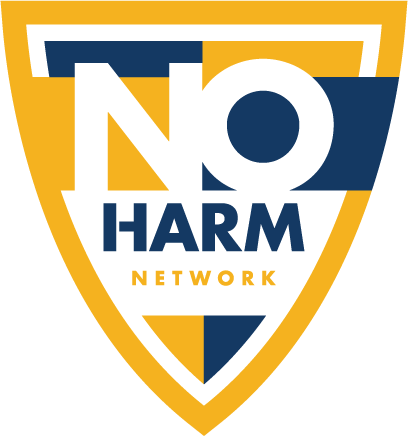Trafficking Survivors Need a Safe Space, Not a Savior
/Written By: Rana Amini, MS, LPC, EMDR-Trained, Clinical Program Director at NFNL
Photo by Molly Blackbird on Unsplash
A survivor of human trafficking. Who is she in your mind? Is she a woman or a girl who is imprisoned and chained up in a dark basement? Is she a damsel in distress waiting for a knight in shining armor? Is she someone who is powerless and waiting for someone to rescue her from despair?
No, that isn’t her.
She is a woman or a girl who has endured a lifetime of horrors, likely starting as a small child. She is a woman who in her earliest and most formative years of life likely learned she could not trust her caregivers. She experienced trauma. Lots of it. Trauma that looked like neglect, domestic violence in the home, substance use in the home, or caregivers with their own severe mental health struggles. She endured uncertainty, fear, instability, and minimal to no moments where she felt any periods of safety in her environment.
The people who were meant to keep her safe were the very people she had to try to keep herself safe from.
When Her World Is Not Safe
When most little girls were learning to explore their creativity, make friends with their classmates and learn about the latest trends, she was learning how to keep herself safe by taking up as little space as possible, learning how to attenuate to the needs of her abusers, and escaping her reality in whatever way she knew how.
We hope that little girls are told and shown how strong, brave, confident and smart they are. She was being told no such thing. She was being shown and told that she is not worthy, that she is not wanted, that she is not good enough and that she is not safe.
What does that do to a young child?
It immediately creates vulnerabilities that if not addressed or bolstered with protective factors will surely bleed into adulthood and gravely impact the way she views herself, others, and the world around her.
These early experiences paint a trajectory of despair and struggle.
So, when she is approached by her neighbor and experiences childhood sexual abuse… she expects it.
When she is physically assaulted by her abusive father... she thinks she deserves it.
And when she runs away from home in the search for a better existence because it is no longer tolerable to endure one more minute of the torment … she is desperate for a different way of living.
So, within 48 hours of being a runaway, when she is approached by a trafficker who offers her a roof over her head, stability, and false promises of safety and love? She believes him.
No one wakes up one day and hopes for and choses a life of sexual exploitation but it happens. And it happens to the 320 women and girls we serve each year.
These women and girls have endured the most unimaginable horrors. And yet, they want nothing more than to come out on the other side. They want nothing more than to get another chance at having the life they have always wanted and the life they deserve. A life of stability, safety and support. But, even when they get the small window of opportunity to access the life they want, the path to stability and safety is paved with endless barriers.
With no safe support or place to live, where can they go? With no money, no education and no employment history, where can they turn?
It is daunting. And yet, they don’t need a savior. They don’t need someone to swoop in and rescue them.
Photo by Andre Hunter on Unsplash
Survivors Need Access, Choice, and Resources
Survivors are remarkable, hardworking and compassionate. Despite the darkness they have endured, they are full of light. They are women of grace, dedication, fervent tenacity and invincible resilience. They have faced the world’s greatest horrors and yet their hearts are still soft. They have every reason to want to give up and never trust another human being, again and yet they fight tirelessly to create a new life and move forward.
What do they need? They need access, choice, and resources.
When we play the role of savior or rescuer, we send a very harmful message to these women that they aren’t enough. We inadvertently disempower them, even when we are well intentioned. And in doing so, we re-create the devastating cycle that they have experienced since childhood.
They need us to understand that they are not fragile, they are not weak, and they are not without choice. They don’t need us as caregivers, allies, or advocates to recreate the abusive dynamic where they are void of choice.
They need an assortment of choices. They need access to safe and supportive environments with individuals that understand that they have done the very best with the very limited choices they have. They need access to fair and affordable housing in safe neighborhoods where they aren’t vulnerable of being re-victimized or re-exploited. They need access to a multitude of employment opportunities that pay them fairly and allow them to make choices based on what kind of work they want to do, instead of having to settle for a few limited options that pay them minimum wage and take advantage of them once again. They need access to trauma informed counseling where they can begin to heal from their nightmares, their flashbacks and their complex PTSD.
Survivors do not need us to save them. They have been able to do it on their own all along. They just need the chance and options to do so.










